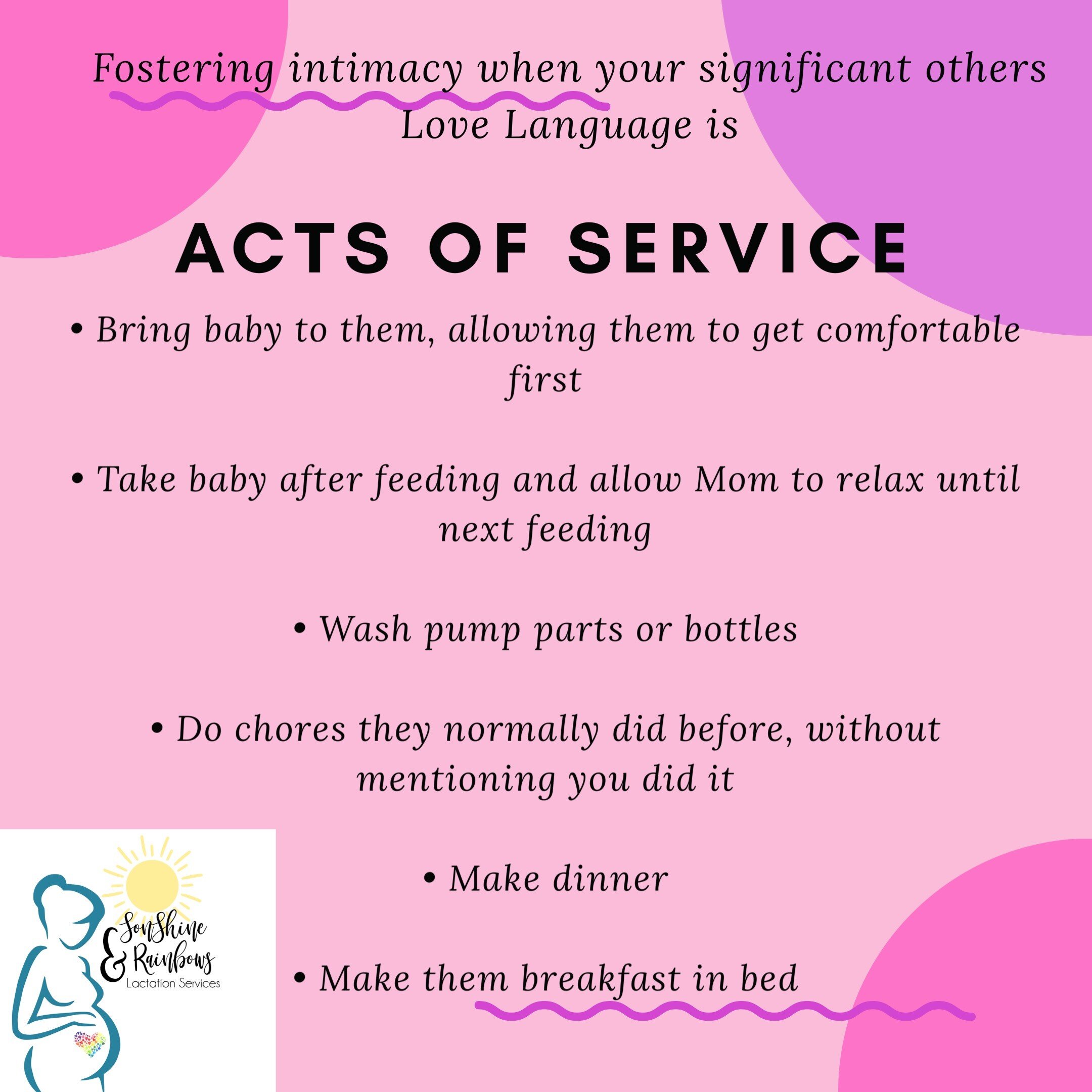Really? A sex post on a breastfeeding blog?
Absolutely! I mean, how do y’all think babies get here??
The body goes through many changes during pregnancy. Hormones peak and plummet and bodies are very different from when they entered this pregnancy. Many partners struggle to find a new normal or new routine when it comes to sex and intimacy. Exhausted Moms, Worn Out Dads, and Stressed Out Partners are navigating parenthood and life. While they may desire sex, let’s just be honest…. Ain’t nobody got time for that. But, making time could prove beneficial for you and your partner.
During pregnancy, the placenta produces progesterone needed to sustain pregnancy. These levels are much higher than what women produce when they are not pregnant. After giving birth, and detachment of the placenta, progesterone plummets. However, Moms estrogen level doesn’t take a hit. This imbalance in hormone levels can directly affect a postpartum parents mood.
Understanding your partner’s love language and how it may change after childbirth is key. It’s key in not only communication, but also in fostering intimacy. Intimacy is defined as close, familiarity or friendship. For many women, sex and intimacy go hand and hand. Postpartum parents often feel vulnerable and overall unsure. Unsure of themselves, unsure of their body, unsure of their new family dynamics, etc. Honestly, sex is the last thing on their minds. We’re sleep deprived, we’re on edge, we can’t remember the last time we showered (or was that just me? Ok. Fine.) However, fostering that closeness can help get us get in that mood (after we’ve been cleared by our doctor. Don’t be out here being Fast and Nasty. That’s how you get Irish Twins).
A love language is simply how your significant other receives and interprets love. For example, my love language is Acts of Service. I love when people do things for me. Their effort makes me feel that I am loved by them. My husband’s is Words of Affirmation. He interprets love as you telling him you love him or things about him. My husband could buy me all the things or tell me he loves me 5,000 times a day. That is not how I receive love. And for him, if I don’t tell him with my words I love him or something he’s done, no matter how much I do for him, he will not feel loved. Not sure of what each other's love languages are? Take the test here.
Here’s some tips to foster intimacy based on your significant other's love language.
If your significant other's love language is Acts of Service, having things done for them is how they receive and interpret love. Some things you can do for them are:
Bring baby to them. This allows them to get comfortable for nursing or pumping, knocking one less thing they have to do off their plate.
Take baby after feeding and allow Mom to relax until next feeding
Wash pump parts or bottles
Do chores they normally did before without mentioning you did it
Make dinner
Make breakfast in bed
If Acts of Service is your partner's love language, they interpret the things you do for them as you caring and wanting them to relax. Anything you can take off their plate makes more space on the plate. Space for things like sleep and intimacy, both of which are at a premium as a new parent. These things help them feel appreciated and seen.
If your significant other's love language is Words of Affirmation, they interpret love as hearing it from you. Some things you can do for them are:
Tell them they’re doing a great job at parenting
Hold space for them
Tell them they're doing a great job as a spouse
Leave an encouraging note on the bathroom mirror
Remind them to take time for themselves
Those whose love language is Words of Affirmation want to hear you say it. And the silence can often be deafening. These parents relish in you speaking life into them. They may know you love them, but they need to hear it. Reminding them verbally of how important they are, not just as a parent, but as a person, can nurture the communication and intimacy you both desire.
If your significant other's love language is Receiving Gifts, they interpret love as… receiving gifts. Some things you can do for them are:
Book a postnatal massage
Buy them their favorite snack
Order in from their favorite restaurant
Buy them a gift and have it delivered without saying anything
Frame their favorite picture of them or the two you and leave it where they can find it
Those whose love language is Receiving Gifts, it’s not the actual amount of the gift, it’s the thoughtfulness. They receive love by knowing you took time out of your day and thought to get them something they’d like. With them, it’s the thought that counts.
If your significant other's love language is Quality Time, they interpret love as time spent. Some things you can do for them are:
Sit with them
Go on a family walk together
Plan a living room picnic
Binge watch a show together and make a date of it
Come home for lunch
Take them to lunch
Those whose love language is Quality Time enjoy just being with you. The busier you are, the fact that you carved out time for them makes them feel all the more loved. They don’t always need big heaps of time; something simple as lunch together says “I have some time today and I want to spend it on you”.
If your significant other's love language is Physical Touch, they interpret love as physical connection. Some things you can do for them are:
Ask if they're up for physical touch
Give them a back massage
Random acts of affection
Hold them while holding the baby
Slow dance to your song
I saved Physical touch for last because this one can be tricky. New parents can feel touched out, so it’s important to always ask if they're up for a hug, hand holding, etc. Allow them to always invite the touches and ensure they aren’t always sexual in nature. They want to feel wanted and close, and if that leads to something else, well hey…...
Don’t be discouraged if the things you try aren’t immediately met with an overwhelming response or sex on the kitchen counter. Remember that this is a very delicate time for them. They need love and consistency. Parenting is hard; be kind to yourselves, and each other.





